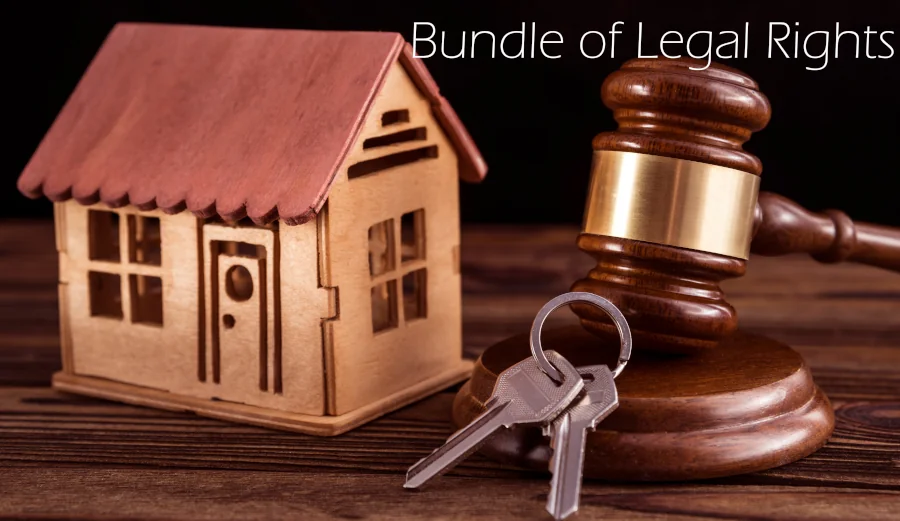
Estates & Tenancies
Your Real Estate Ownership Rights
Owning a home comes with a lot of external variables. Some are good, while some can be seen as a burden by others. Taxes for example are a necessary external burden, I am sure we can all agree on that. Ownership rights, however, can be seen as a plus. Estates and tenancies are just that, your ownership rights or the extent of interest an individual owns. Additionally, it also includes the degree, quantity and nature of those rights.
Today we’re going to highlight a topic that has a lot to offer, estates and tenancies. We are going to jump right into this subject so that you get as much details as quickly as possible. For the sake of conversation, let’s keep in mind that estates and tenancies are interchangeable.
There are two types or groups of estates. These two groups also provide subcategories of estates or tenancies. They also limit or increase the rights allotted to the owner or owners. These two estates are called:
- Fee Simple Estate
- Life Estate
RELATED ARTICLE: Preparing to Buy Your Home
Bundle of Legal Rights
In order to better understand what the differences between these estates are, you need to better understand the “Bundle of Legal Rights”. The rights you have to your real property are known as the “Bundle of Legal Rights”. These rights include:
- Disposition: This is known as the right to dispose of the property – all or portions of it – in any manner. This is your right to mortgage, sell, give away or dedicate the property as you best see fit.
- Possession: This is your right to privacy and occupation. The day you get legal title to the property, you have all the rights of possession that any other owner would with their property.
- Control: As long as you are consistent with known local laws, the right to control is the right to uninterrupted use of the property and the right to control the property as you best see fit. Consistency with local laws is in relations to zoning laws.
- Enjoyment: There is a legal term for this called “quite enjoyment”. The right of enjoyment relates to the use of the property without any outside interference. It also relates to its literal meaning, the right to enjoy the property as you best see fit.
- Exclusion: This is your right to exclude others from entering the property without permission. The right to exclusivity and to keep others from trespassing.
The Bundle of Legal Rights makes it possible to have multiple ownership interest by simply keeping or omitting any combination of these legal rights. For example, a tenant in a rental home may have the right of possession but they do not have the right of disposition. They have the right to privacy and possession but only the landlord has the right of disposition.
RELATED ARTICLE: Florida’s First-Time Home Buyer Down Payment Assistance Program
Freehold Estates
A Freehold Estate provides two categories of ownership interest, a fee simple estate and a life estate. The difference between the two is focused around ownership interest, whether limited or absolute.
Fee Simple Estate: This is the most comprehensive of all ownership interest a landlord can have. A fee simple or “absolute” offers all the benefits of the Bundle of Legal Rights. A key trait of a fee simple is the ability to have your real estate property descend to your heirs. A fee Simple Estate:
- Is for an indefinite period of time
- It can be inherited
- Offers the full Bundle of Legal Rights
- Provides all the power to use, dispose of and lease
Life Estate: Is also a freehold estate except that it is created by the fee simple title holder and is usually for a specific purpose. It also comes with two other caveats, estate in reversion and a remainderman. A life estate can only be done by the fee simply title holder.
In this example, let’s say that a family of 4, husband, wife, sister and brother, have ownership rights to properties. Let’s also say that one of the siblings has a medical condition that requires going above and beyond for the individual’s well-being. In this case, let’s say it is the brother. The mother can provide a life estate to her son so that he will have a home until he passes, no matter how long his life is. This will offer security and peace to the already medically prohibited sibling brother.
RELATED ARTICLE: Tips To Helping Your Buyers Purchase Their Home Sweet Home
Reversions and Remainderman
These two are subcategories of a life estate. Once a life estate has lived its purpose, the property with all its legal rights will need to either revert to the original fee simple title holder or a remainderman. The remainderman will then become the new fee simple holder.
Estate in Reversion: An estate in reversion or reversion estate is created if the title will return to its original owner. The original fee simple title holder will once again have a fee simply title to the real property. Alternatively, there is also the option of a remainderman.
Remainderman: At the end of a life estate, the original fee simple title holder can also choose to have a remainderman. At this point, a remainder estate is created allowing another to have full possession of the real property in fee simple. When the life estate expires at the end of the holder’s life, the remaindermen would then get a fee simple estate and full control of the property. In this example, this could be the original owner’s child who was placed or given a remainder estate. Once the life estate given by the original title holder expires, the property along with all it’s legal rights will be handed over to the child of the original owner who created the life estate.
We hope this helps to better clarify what these rights are to you as a homeowner or expecting homeowner. If you’d like to have an account to communicate with our agents and post a comment, please feel free to leave us a message letting us know you want to engage.


